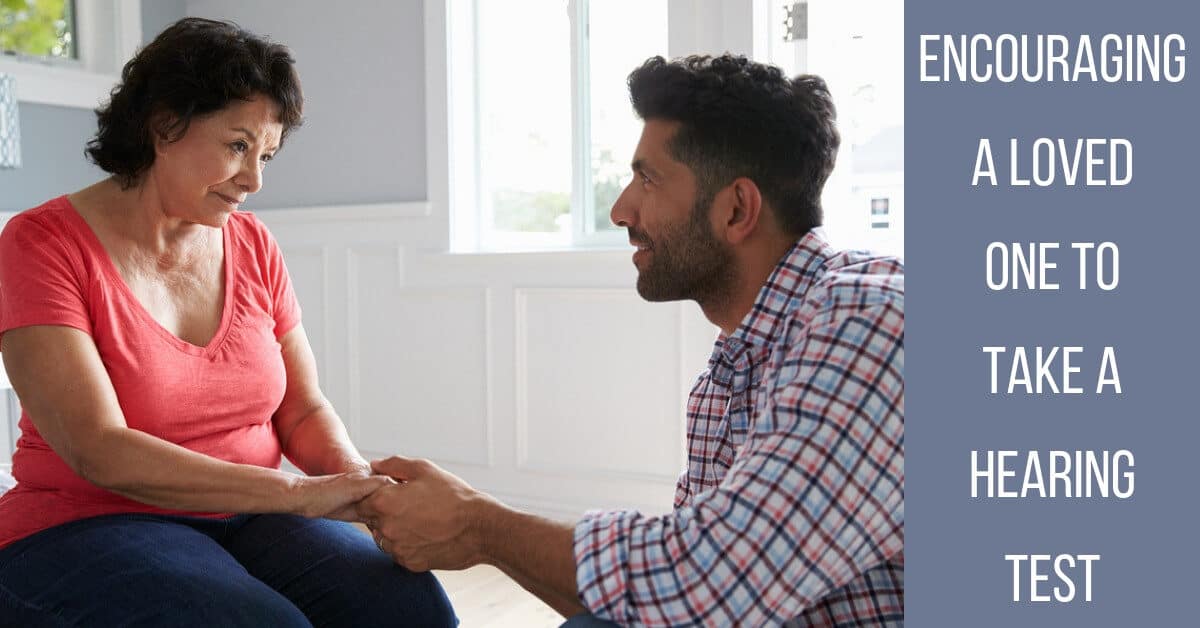- Using Hearing Aid Accessories for Enhanced Listening - May 6, 2025
- Practical Tips for Managing Daily Challenges With Tinnitus - April 8, 2025
- Signs Your Hearing Aid Battery Needs to Be Replaced - March 13, 2025
Communication: essential to any relationship, whether it be a marriage, a friendship or even a work partnership. All manner of relationships are negatively impacted when a person has untreated hearing loss, but it is those closest to the hard of hearing person that suffer the most. If your spouse or family member has untreated hearing loss that has led to communication barriers in their relationships, you may be wondering how to help them.
The first step is opening up the conversation about their hearing loss, and asking them to have their hearing tested. It may not be an easy conversation, but it’s an important one, and there are a few steps that can help to make things easier.
What are the negative consequences of not treating hearing loss?
In a recent hearing loss study, 48 percent of participants said their marriages had suffered as a result of their own or their spouse’s untreated hearing loss. When one person has difficulty hearing it can put a heavy strain on a relationship, in a number of ways.
Research suggests that it takes an average of seven years for someone to take steps to treat their hearing loss, from the time they first become aware of it. As hearing loss happens gradually, it is often the case that people don’t realize how serious their level of loss has become. Others postpone treatment out of worry, embarrassment or denial. But the consequences of not treating hearing loss are far-reaching and can do serious damage to a relationship.
The delay in getting treatment often means an additional burden for the hearing spouse, who has to act as a “hearing helper”. The hard of hearing partner may experience a loss of confidence, less enjoyment of activities, and resentment of having to rely on their hearing partner.
Partners of hearing loss sufferers have expressed feelings of frustration about their partner’s frequent need for them to repeat themselves, as well as having to perform basic tasks for their loved one like answering the phone and dealing with personal errands.
A loss of intimacy is another unhappy side effect of untreated hearing loss. The small, shared moments that are so vital to maintaining a relationship–a quiet joke, a whispered word of encouragement–are lost when one person struggles so much to hear.
How do I know if my loved one has a hearing loss?
There are several signs your loved one may suffer from hearing loss:
- They dislike talking in noisy environments
- They answer questions inappropriately or talk off-topic during a conversation
- They frequently ask people to repeat themselves
- They listen to the TV at too loud a volume
- They find it especially difficult to understand women and children
Choose a good moment
Beginning a dialogue with your partner about their hearing loss is a very delicate process. Be sure to choose the right time to talk, preferably when they aren’t stressed or annoyed about something. Pick a quiet spot away from any distractions so that their focus is on you.
In beginning the conversation, refrain from making accusatory or insulting remarks. Your general mood should be concerned and encouraging. Mention times where you have noticed them encountering difficulties understanding friends and family. Confess your fears that you may have about your marriage and the communication breakdown that will occur if the condition remains unchecked.
Talk about the benefits of hearing aids
If they seem receptive to your comments, you can begin to list the many benefits of using hearing aids: the act of hearing becomes less tiring. It becomes easier to connect with friends and family and they will become more sociable as a result of their newfound hearing ability. Personalize each benefit by relating it to a particular close friend that they enjoy speaking to.
Hearing aids have proven health benefits as well, such as increased mobility, and a reduced risk of Alzheimer’s and other forms of dementia.
Address any concerns they might have
There are several common misconceptions that deter people from wanting to try hearing aids. Some people are worried about the lack of independence that hearing aids imply, so be sure to stress all the different things they can do that they are currently unable to do, such as reconnecting with friends and family. Others are concerned about having a large mold of plastic connected to their ear for all to see. Remind them that many modern hearing aids are extremely discreet and wirelessly connected to a phone – with the right device, they won’t need to touch their ear all day.
Honesty is best
If you feel uncomfortable talking to your loved one, friend or coworker about their untreated hearing loss, just remember that being clear and upfront about your feelings is the best approach. Talk about how their hearing loss is affecting you personally, and offer to go with them to their hearing appointment. Hearing loss may be a difficult subject for you to bring up, but the rewards will be abundant.
Visit Us at Audiology Consultants
When your loved one is ready to take a hearing test, contact us at Audiology Consultants. We provide comprehensive hearing services, from exams to fittings, to ensure that you and your family are hearing at your best.


